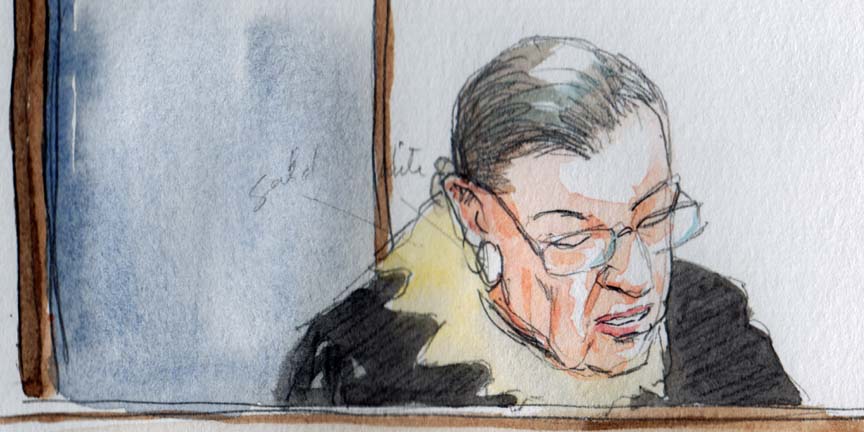Opinion analysis: Justices validate immediate appeals of bankruptcy orders denying relief from the automatic stay


Ritzen Group v. Jackson Masonry is one of those uncommon cases in which the argument left little doubt about how the justices would rule. I often think that arguments suggest a likely outcome, but rarely am I certain enough about a “lean” to predict a particular result in a post summarizing the argument. I took that risk in my argument analysis in Ritzen Group, though, and it paid off with this morning’s opinion holding that creditors are entitled to an immediate appeal of a bankruptcy court order denying relief from the automatic stay of creditors’ debt-collection efforts that results when a petition for bankruptcy is filed.
Justice Ruth Bader Ginsburg wrote a brief opinion for a unanimous bench. As she explains, federal courts ordinarily hear appeals only from “final decisions” that completely resolve “cases” pending in the district courts. That framework, though is “not attuned to the distinctive character of bankruptcy litigation.” Because a bankruptcy proceeding centralizes in the bankruptcy court almost all matters involving the debtor, bankruptcy courts routinely “resolve discrete controversies definitively while the umbrella bankruptcy case remains pending.” Accordingly, the relevant statute (Section 158 of the Judicial Code) provides for appeals not only from final decisions in “cases,” but from all “final judgments, orders, and decrees … in cases and proceedings.” An earlier case (Bullard v Blue Hills Bank) explained that Section 158’s reference to “proceedings” contemplates an immediate appeal whenever bankruptcy court orders “finally dispose of discrete disputes within the larger case.”
The question in Ritzen Group is whether an order that “rules dispositively” on “a creditor’s motion for relief from the automatic stay” is such an order, and Ginsburg has no trouble concluding that it is. She explains that such an order “disposes of a procedural unit anterior to, and separate from, claim-resolution proceedings,” noting both that a motion seeking relief from the stay “initiates a discrete procedural sequence, including notice and a hearing,” and that “the creditor’s qualification for relief turns on the statutory standard” set forth in Section 362 of the Bankruptcy Code. Ginsburg also offers a holistic statutory argument, pointing out that a “neighboring” provision (Section 157) identifies a motion seeking relief from the stay as one of the “discrete” “core proceedings” at the heart of bankruptcy court jurisdiction.
The only part of Ginsburg’s opinion that may have broader implications is a brief section dismissing the arguments against immediate appealability. In that section, she acknowledges that the “proceedings” that would ripen into an appealable order should not “include disputes over minor details about how a bankruptcy case will unfold,” but she states that the orders at issue here “have large practical consequences” that are not “matters of minor detail” but rather “can significantly increase creditors’ costs.” Lower courts trying to apply Bullard and Ritzen Group to other bankruptcy contexts likely will refer to those passages.
As I noted in both of my prior posts, Ritzen Group was not on the Supreme Court’s docket because of its pressing urgency; this case came to the court solely because of a disagreement among the lower courts about a specific procedural question. The court’s decision resolves that question crisply and thus should be the last word on the topic for the foreseeable future.
Posted in Merits Cases
Cases: Ritzen Group Inc. v. Jackson Masonry, LLC
